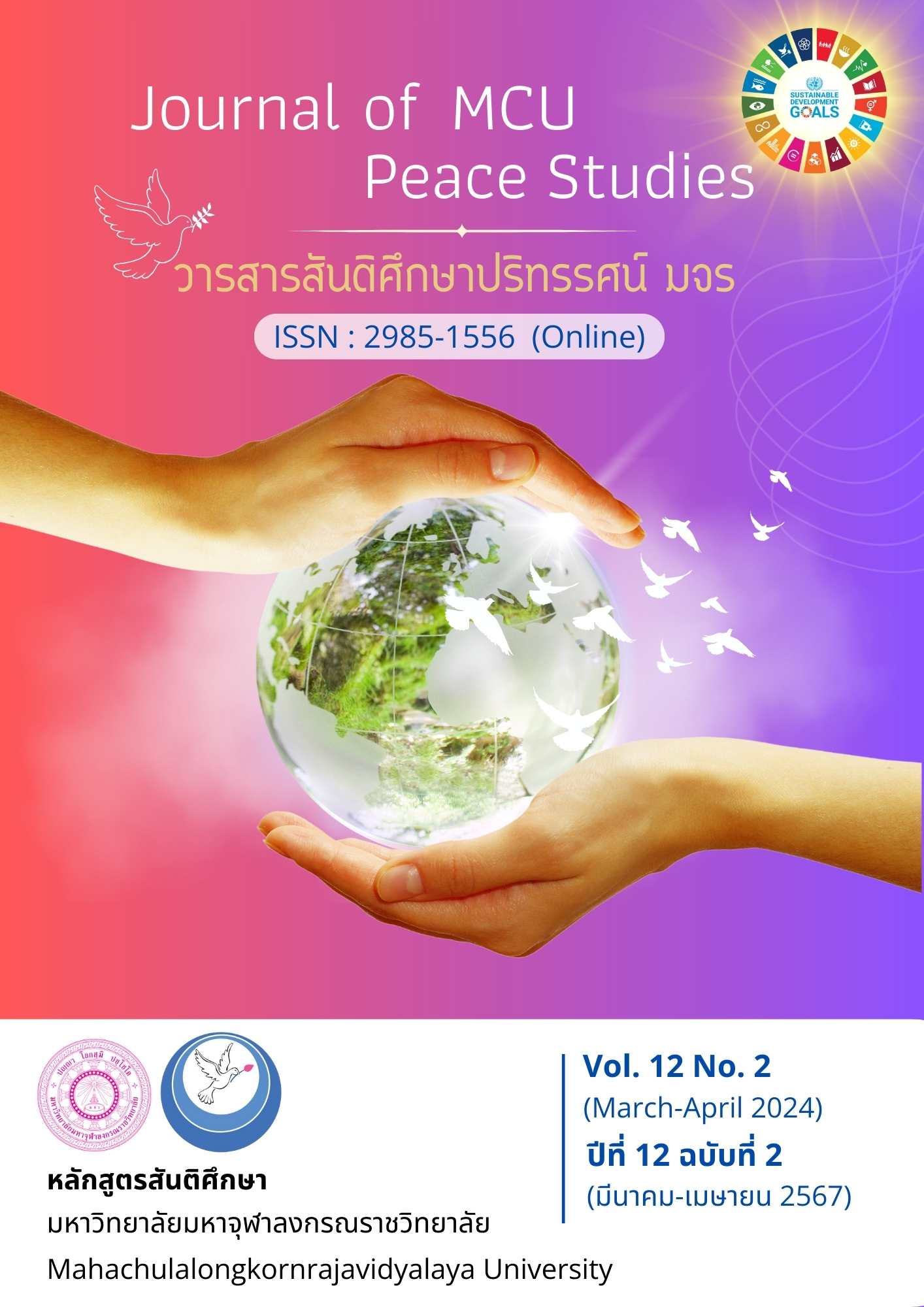Social Capital and Strengthening the Community’s Foundation Economy
Main Article Content
Abstract
Social capital plays an important role in strengthening the grassroots economy of the community as it improves the efficiency of farmers' operations within the community, leading to greater power in their operations. This is because community members rely on one another, engage in social interaction, and receive mutual benefits, leading to improved living conditions and self-sufficiency.
The research article titled "Social Capital and Strengthening the Community's Grassroots Economy" had two objectives: 1) to investigate a model of social capital among farmers who grew organic vegetables in Pak Chong District, Nakhon Ratchasima Province; and 2) to propose guidelines for using social capital to strengthen the grassroots economy of Pak Chong District, Nakhon Ratchasima Province. The researcher used a qualitative research method, collecting data through documentary research and conducting structured in-depth interviews with a group of farmers who practiced organic agriculture in their agricultural areas, including owners, co-founders, and/or managers with more than five years of experience growing organic vegetables in Pak Chong District, Nakhon Ratchasima Province.
From the study, the following results were found: 1) Social capital and the basic components of all three types of social capital include one that comes from family members, relatives and close friends who are well acquainted with one another. The relationship is horizontal, with everyone being treated equally. Outside the community, social capital is a vertical relationship between different levels of hierarchy or authority through formal institutions or organizations. The social actions of groups of organic vegetable farmers focus on participation, e.g. group activities, trainings, and studies; and 2) The guidelines for using social capital to strengthen the grassroots economy include identifying the root causes of problems, participating in decision-making and operations, and participating in benefit gain and evaluation.
Article Details

This work is licensed under a Creative Commons Attribution-NonCommercial-NoDerivatives 4.0 International License.
Views and opinions expressed in the articles published by The Journal of MCU Peace Studies, are of responsibility by such authors but not the editors and do not necessarily reflect those of the editors.
References
Christoforou, A. (2013). On the Identity of Social Capital and the Social Capital of Identity. Camb J Econ, 37(4), 719-736.
Eawsriwong, N. (2000). Social Capital, Strong Community Book Series No. 3. Bangkok: Social Fund Office, Savings Bank.
Hunnak, C. et al. (2016). Building a Strong Community through the Learning Process in Organic Farming. Bangkok: Rajamangala University of Technology Rattanakosin.
International Institute for Management Development. (2022). World Competitiveness Ranking 2022. Retrieved June 20, 2023, from https://www.imd.org/centers/wcc/world-competitiveness-center/rankings/world-competitiveness-ranking/
Office of the National Economic and Social Development Board. (2016). Draft 20-Year Strategy. and the Directional Framework of the National Development Plan. Retrieved March 15, 2023, from https://www.project-wre.eng.chula.ac.th
Office of the National Economic and Social Development Council. (2019). Poverty and inequality Report 2019. Retrieved March 12, 2023, from https://www.nesdc.go.th/article_attach/article_file_20201103111407.pdf
Office of the National Economic and Social Development Council. (2022). The National Economic and Social Development Plan 13th 2022. Retrieved May 15, 2023, from https://www.nesdc.go.th/download/Plan13/Doc/88_13.pdf
Sriwichailamphun, T. (2013). Community Economic Development. Chiang Mai: Faculty of Economics, Chiang Mai University.
Thailand Development Research Institute Foundation. (2015). A Project to Study Farmers' Indebtedness and Ways to Improve the Operational Potential of the Fund under the Supervision of the Ministry of Agriculture and Cooperatives. Bangkok: Thailand Development Research Institute Foundation.
Wannathanang, K. (2010). Social Capital and Knowledge Provision for Self-reliant Communities. (Doctoral Dissertation). Department of Public Policy, Graduate School: National Institute of Development Administration. Bangkok.


